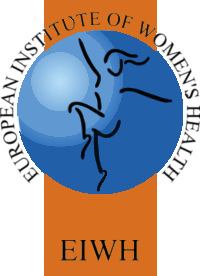PRESS RELEASE
For Inmediate Release
In Celebration World Ovarian Cancer Day 2018, the European Institute of Women’s Health announces its forthcoming latest policy brief, “Women and Ovarian Cancer in the EU,” in order to raise awareness about and to reduce the burden of ovarian cancer across Europe #WOCD.
8th of May 2018—Since 2013, World Ovarian Cancer Day (#WOCD) has been held on the 8th of May each year to raise awareness about and to reduce the burden of ovarian cancer. The European Institute of Women’s Health (EIWH) actively supports #WOCD and announces its latest policy brief, “Women and Ovarian Cancer in the EU” to be published later this month to help combat this lethal women’s cancer across Europe.
Ovarian cancer has the lowest survival rate of all gynaecological cancers. Ovarian cancer is the 7th most common cancer and 6th most common cause of cancer death for women globally. In 2012, there were 65,000 cases of ovarian cancer in women in Europe. Annually, ovarian cancer results in more than 42,700 deaths in Europe. Europe has the highest rates of ovarian cancer in the world with wide variation across the EU with regard to survival rates. We must urgently work together to combat this “Silent Killer” of women in Europe.
Ovarian cancer is often misdiagnosed, and its diagnosis frequently delayed. Its symptoms can often be attributed to other conditions, like gastrointestinal issues, and as a result,diagnosed at a late stage when it is difficult to treat. About 60% of those with ovarian cancer are diagnosed at a late stage (Stage III or IV) with significant implications for the success of treatment. Only 45% of women diagnosed with ovarian cancer survive for five years. Socioeconomic and racial inequities are apparent in ovarian cancer further exacerbate issues surrounding its diagnosis, treatment and survivorship.
Despite its lethality, there are currently no effective screening programmes for ovarian cancer or simple diagnostic test.. The lack of sufficient screening and early detection of ovarian cancer results in substantive costs both for the patient herself and for the healthcare system as a whole.
Investing in women’s health requires a comprehensive life-course approach that includes social and economic factors, addressing important issues that affect women, like gynaecological cancers, particularly ovarian cancer. Action must be taken early and at critical points to ensure health and wellbeing from young through older age. Collaboration with other sectors with girls and women themselves is key to successful policy and programming.
Europe has disproportionately high rates of ovarian cancer in a global perspective. As the population in Europe continues to age and women disproportionately comprise older people, ovarian cancer will be on the rise in Europe. There is a lack of understanding about ovarian cancer, including recognising its symptoms at an early stage. Health literacy campaigns to educate key stakeholders—including women themselves—about ovarian cancer should be promoted, including promotion of information on risk factors and symptoms of ovarian cancer as well as its links to other cancers, like breast cancer, particularly for women with the BRCA mutation. More should be done to promote the understanding of ovarian cancer both amongst high risk groups and in the general population. Vulnerable groups should be specifically targeted.
Efforts must be made to increase the understanding of and research on ovarian cancer in order to combat this deadly condition. Policymakers and key stakeholders should support action that addresses ovarian cancer through improved awareness, data, research, diagnosis, treatment and care. On #WOCD, the Institute calls on key stakeholders and citizens of Europe to work together to reduce gender inequities. The EIWH welcomes new efforts to develop effective policies that reduce the burden that ovarian cancer poses to women.
For more information, please visit:
- European Institute of Women’s Health website: https://eurohealth.ie/
- World Ovarian Cancer Day website: http://ovariancancerday.org
- World Ovarian Cancer Coalition website: http://worldovariancancercoalition.org
About the EIWH
Founded in 1996, the European Institute of Women’s Health (EIWH) is a non-governmental organisation (NGO) that uses an evidence-based to advocate for an equitable, sex- and gender-sensitive approach in health policy, research, promotion, treatment and care. The Institute promotes biomedical and socio-economic research that addresses sex and gender-based differences to ensure access to quality treatment and care for women across their lifespan. The EIWH strives to reduce inequities by drawing policymaker’s attention to the obstacles that women in minority, migrant, refugee and socio-economic disadvantaged groups face. The Institute’s activities work to empower individuals to play an active part in their own health management.
